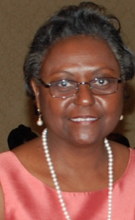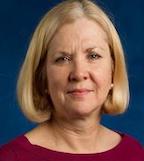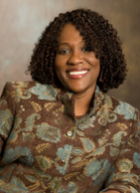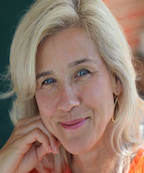|
Leadership, Program Development, and Professional Services
|
 Mariale Hardiman is a Professor of Education and the Co-Founder/Director of Johns Hopkins’ Neuro-Education Initiative (NEI). The NEI has been recognized as an innovative cross-disciplinary program that brings to educators relevant research from the learning sciences through the Mind, Brain, and Teaching masters and doctoral courses and professional development programs. Her research and publications focus on enhancing educational practices through techniques that foster a holistic approach to learning and creative problem-solving. Research includes randomized control trials investigating the effects of arts integration on long-term retention of academic content. She is also investigating how knowledge of the learning sciences influences teaching practices and teacher efficacy beliefs. Before joining Johns Hopkins in 2006, Hardiman served in a variety of leadership and administrative roles in the Baltimore City Public School System. As the principal of Roland Park Elementary/Middle School, she led the school to its designation as a Blue Ribbon School of Excellence. With the use of the Brain-Targeted Teaching® Model that Hardiman developed, the school was recognized nationally for innovative arts programming. Hardiman presents nationally and internationally on topics related to the intersection of research in the learning sciences with effective teaching strategies, including meaningful integration of the arts. Hardiman earned undergraduate and Masters of Education degrees from Loyola University Maryland and a Doctorate of Education from Johns Hopkins University. |
 Clare O’Malley Grizzard is an adjunct faculty member at Johns Hopkins University, School of Education. Since 2012, she has been the arts integration curriculum specialist for the Neuro-Education Initiative team creating curriculum and conducting randomized-control trial studies. She is an adjunct professor at the Maryland Institute College of Art, Center for Arts Education. Ms. Grizzard has worked with The Brain Targeted Teaching Model designed by Dr. Mariale Hardiman, since its beginning. Ms. Grizzard has trained educators nationally and internationally to implement the BTT model, emphasizing the arts’ value in effective teaching and learning. With a long career in independent consulting in museum education at many museums including The Walters Art Museum, The Baltimore Museum of Art, and at the National Gallery of Art and The Yale Center for British Art. Ms. Grizzard was an Arts Integration coach in the Baltimore City Public Schools for over 20 years. At Roland Park Elementary/Middle School, a nationally recognized model school for arts programming in Baltimore City, she was formally the Fine Arts Coordinator and Arts Integration Specialist, as well as a member of the visual arts faculty. Ms. Grizzard received her B.F.A. from Pratt Institute and her Master’s in Art Education from the Maryland Institute College of Art. |
 Ranjini Mahinda JohnBull serves as the faculty lead for the Mind, Brain, and Teaching program. Her work centers on improving educational and life outcomes of traditionally disadvantaged students and children living in poverty through research on teacher beliefs and teacher practice. To that end, she focuses on teacher efficacy, the social contexts in which these beliefs change, and interventions that improve teaching efficacy and teacher practice. This work builds on the body of literature demonstrating that teacher efficacy influences student outcomes. Her research encompasses cultural competence and teacher efficacy studies, an IES-funded, arts-integration and memory study in Baltimore City, and professional development investigations of the Brain-Targeted Teaching model’s effects on teaching efficacy. Prior to joining Mariale Hardiman’s research lab for a two-year postdoctoral research fellowship, she served as a music teacher in two St. Louis City charter schools, provided teacher training and microbusiness strategic development in Uganda with the U.S. Peace Corps, and coordinated the graduate-student assessment data collection for accreditation of the Education Leadership program at the University of Virginia. |
 Joe Meredith is the Executive Specialist with the Dean’s Office at the Johns Hopkins University School of Education. Joe assists in managing the many projects and initiatives with the Dean’s Office. He received his M.Ed. from the University of Maryland, College Park, specializing in School Counseling. Joe majored in Psychology as an undergraduate at the University of Delaware. Prior to joining Johns Hopkins University, Joe was a school counselor in a middle school in Northern California. |
 Carolyn H. Freeland currently serves as the Community Schools Consultant for Johns Hopkins University through the Homewood Community Partners Initiative. She is a retired Baltimore City Public Schools’ principal having also held the positions as a guidance department head, assistant principal and elementary teacher. Ms. Freeland serves on the Board of Directors for Arts Every Day, a non-profit organization that provides arts experiences for students in forty-two Baltimore City Public Schools. Ms. Freeland is a member of the Any Given Child (John F. Kennedy Center) committee for Baltimore and a Nationally Certified Counselor (NBCC)-Retired. |
 Deborah Carran is a Professor in the School of Education at Johns Hopkins. She received her doctorate in Developmental Psychology from the University of Miami, and then was a National Institute of Mental Health postdoctoral fellow in Psychiatric Epidemiology for 2 years in the Department of Mental Health at Johns Hopkins Bloomberg School of Public Health. Professor Carran has been a faculty member in the School of Education with JHU for the past 25 years with areas of specialization in research design, methodology, statistical analysis, and evaluation. Areas of research include longitudinal database linkage and tracking, program evaluation methodologies, and data driven decision making for education. Her responsibilities in the School focus on teaching doctoral students the fine discipline of statistics. She serves as the methodologist on several dissertation committees. Her current grants include working with the Maryland State Department of Education on longitudinal outcomes of Part C and B children, working with local directors of special education to utilize state reporting systems, compiling and reporting on the Federal Disproportionality indicators, and several training grants in the JHU medical school. Additionally, she has been a recipient and reviewer for Federal Research and Training Programs. |
.jpg) Dr. Clara Fangfang Ma is a Research Fellow and Affiliated Professor at both the Whiting School of Engineering and Carey Business School at Johns Hopkins University. Teaching courses in Business Communication, Business Leadership and Human Value, and Strategic Human Capital, her pedagogical approach is based on her brain-targeted research, conducted under the guidance of Dr. Hardiman. Dr. Ma's research endeavors are centered on bridging the gap between the neuroscience of learning and the neuroscience of leadership, with a particular emphasis on leveraging Generative AI. As a Neuroleadership researcher and program director, she is dedicated to promoting a culture of genuine inclusion in the workplace through the principles of Neuroleadership theory. |
 Fay E. Brown, Ph.D., an Associate Research Scientist at the Child Study Center at Yale University, serves as the Director of Child and Adolescent Development for the School Development Program in that Center. Dr. Brown has worked at the elementary, high school and college levels, teaching and counseling students. Her major focus in her current position is to help schools create and maintain developmentally appropriate conditions to ensure the holistic development of every child. Dr. Brown has authored and co-authored journal articles about reading achievement of struggling elementary school students, and about the over-representation of African-American students in special education classes. She has also co-authored book chapters in such books as: Child by Child; Six Pathways to Healthy Development and Academic Success; and Dynamic Instructional Leadership to Support Student Learning and Development. Dr. Brown has served as an educational consultant to individual schools, school districts, and various other groups, including parent groups and the educational task force of the United Church of Christ. She serves on a number of boards and committees, including Connecticut Employment and Training Commission’s (CETC) Adult Literacy Leadership Board; Scholastic’s National Advisory Committee; and Yale-Scholastic Collaborative for Child and Family Resilience. Dr. Brown is a motivational speaker, and in that capacity, delivers keynote addresses, and conducts workshops at local, national, and international conferences and other professional development events. |
 Sheila Ohlsson Walker is a Senior Scientist with Tufts University’s Institute for Applied Research in Youth Development; a Visiting Assistant Professor with the Johns Hopkins School of Education; an Adjunct Professor of Pediatrics at George Washington University / Children’s National Medical Center; and a Faculty Affiliate at the University of California, Irvine. Her research interests focus on how information from the fields of neurobiology, genetics, epigenetics, psychoneuroimmunology and human development can be translated and applied to promote healthy multi-generational relationships and lifestyle habits, reduce rates of chronic disease, enhance school performance, and optimize health and learning throughout life. A core focus is on the biological embedding of chronic stress, and how environmental factors can significantly enhance or degrade health and educational outcomes, with an emphasis on highly vulnerable populations. Her research interests include the preconception, prenatal and early childhood origins of health and neurodevelopment, and understanding how biosocial research on adverse childhood experiences (ACEs) and toxic stress can be effectively leveraged towards early intervention, prevention, resilience and enhanced quality of life within family systems and communities. Dr. Walker received her doctorate in Behavioral Genetics from Kings College London in 2005. |
Susan Rome holds a BFA in Acting from Boston University, a post-baccalaureate degree in teaching from Western Washington University’s Seattle Urban Teacher Education Program (SUTEP), and a M.Ed. in School Improvement and Leadership from Goucher College. She lived in Los Angeles for eight years, where she co-founded the acclaimed Road Theatre Company. She began her teaching career at the Road in an after-school program which was implemented with a grant from Los Angeles County Council on the Arts. She taught Language Arts, Social Studies, Creative Writing, and Drama at Meany Magnet Middle School in Seattle, Washington. She taught Social Studies at Roland Park Elementary/Middle School. The focus of her teaching has always been designing and implementing arts-integrated curriculum to enhance student achievement. Since 2002, Susan has taught at the Baltimore Lab School, a division of the Lab School of Washington. The Lab School is an arts-based school for children with mild to severe learning differences. The arts are the cornerstone of the Lab School’s philosophy that all children can succeed. Susan uses Brain-Targeted Teaching™ in all of her teaching at Lab, and as the Methodology Coach, trains other teachers how to use Dr. Hardiman's approach. Susan coaches acting and also has a career as a stage and film/TV performer. Selected credits: NYPD Blue, The Wire (seasons 1-4), John Waters’ A Dirty Shame, and the recent film “My One and Only” starring Renee Zellweger. On stage recently, she has worked at Theatre J (DC), Rep Stage (Columbia), and at the Baltimore Shakespeare Festival. |
Amanda Barnes has been teaching in Baltimore City for six years and is currently the enrichment teacher and coordinator at Roland Park Elementary Middle School. She holds a Bachelor of Arts in Elementary Education and a Master of Education in School Improvement Leadership from Goucher College. She has a strong background in theater, music, and dance and believes that the best teaching and learning can occur when the arts are effectively incorporated. Baltimore has been her home since birth, providing her with many fantastic learning opportunities. She has two dogs, Mocha and Bruiser and a wonderful, loving, supportive family. |
 Kathleen Kryza is a life-long learner, an experienced teacher and an outstanding international presenter/coach/consultant. Kathleen is passionate, informed and committed to bringing the best educational practices to schools and teachers, so that they can help ALL students succeed. She has taught general education, special education, and gifted and talented students. Kathleen has also worked with students of varying socio-economic and multi-cultural backgrounds She has taught and co-taught a variety of content areas at both secondary and elementary levels. Workshops with Kathleen are highly practical, brain-targeted and inspirational. She has authored and co-authored multiple books. Kathleen has a Masters Degree in Special Education, and a Bachelors Degree in Elementary Education. Kathleen is a National Writing Project graduate. She has also done extensive training over the years with giants in the field on topics such as differentiated instruction, brain-targeted learning, cooperative learning, co-teaching, coaching, and content literacy. |
